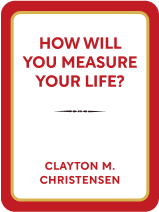

This article is an excerpt from the Shortform book guide to "How Will You Measure Your Life?" by Clayton M. Christensen. Shortform has the world's best summaries and analyses of books you should be reading.
Like this article? Sign up for a free trial here .
How can career reflection help you find job satisfaction? What questions should you be asking yourself?
Career reflection questions can help you work out whether you’re on the right track in your career. You’ll find out what motivates you, the assumptions you have, and how to track your resources.
Read on to find some helpful career reflection questions.
Career Reflection Questions
Use the career reflection questions below to work out if you’re where you want to be in your career. You’ll discover what motivates you, what your assumptions are about your job, and what is important to you when choosing a career.
Assess Your Job
Part of effective career reflection is working out what motivates you. People choose jobs based on 1) hygiene factors (money, status, perks, security, working conditions), or 2) motivating factors such as having challenging work, responsibility, learning, the chance to grow, and the chance to make a meaningful contribution. The motivators rather than hygiene factors are what make you happy.
- What factors made you choose your current job? Which were hygiene factors (money, perks, security, working conditions) and which were true motivators? Which were most important in your decision?
- How do you feel about your job now? (Do you love or just tolerate it?)
- What factors will you prioritize in choosing your next job?
What Are Your Assumptions?
To decide when to pursue an option or to stay the course with your deliberate strategy, ask yourself: What assumptions have to be correct for this course of action to succeed? (Often plans are based on assumptions that are incorrect.) Specifically, when considering a job, ask yourself the following career reflection questions:
- Why do you think you’d enjoy this job and how do you know this?
- What would others have to do for you to succeed in the job? (For instance, the company would have to follow through on a promise to provide you with certain training.)
- What assumptions do you have about the job that have to be right for you to succeed? Do you have control over these things? (For instance, you assume you would have a mentor, or the opportunity to work on new product development.)
- What assumptions have to be right for you to be happy in the job? Are they hygiene or motivation factors? (For example, you’ll be able to work from home two days a week.)
- How can you test your assumptions? (For example, if you’re assuming the company will keep its promise to provide training, ask for examples and dates of similar training the company has provided to employees.)
Before Accepting a Job
People often commit to a job or career path before realizing it’s not working out. To avoid this, before accepting a job, question your assumptions about the job. Ask yourself which assumptions have to be right for you to be happy in the job.
- When you accepted your current job, what were your assumptions about it?
- Which assumptions proved to be accurate and which were wrong? How important were your main assumptions to your happiness and success in the job?
- What questions will you ask yourself before accepting another job?
Track Your Resources
Where you apply your resources (time, talent, energy, money), intentionally or unintentionally, is your real strategy. This is a significant aspect of your personal career reflection. It’s the accumulation of your daily decisions and actions. Follow the flow of your resources to determine whether you’re on track for where you say you want to go.
- List the main things or pursuits in your life that compete for your attention and resources. What percentage of your time and money do you allocate to each in a given day or week?
- How does this allocation align with your beliefs about what’s most important in your life?
- Is there anything you would like to change? Why or why not?

———End of Preview———
Like what you just read? Read the rest of the world's best book summary and analysis of Clayton M. Christensen's "How Will You Measure Your Life?" at Shortform .
Here's what you'll find in our full How Will You Measure Your Life? summary :
- How economic theories that help businesses succeed can also help individuals make better life decisions
- How to build a career that makes you happy
- How to deepen your relationships with your spouse and children






